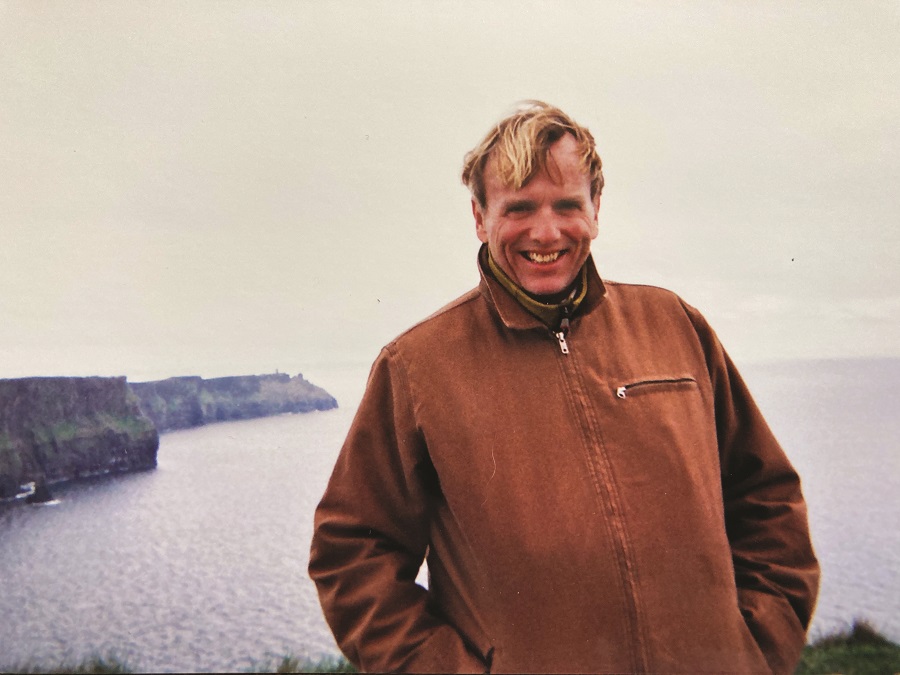Richard McCann, a beloved writer long associated with the Fine Arts Work Center in Provincetown, died on Jan. 25, 2021 in Washington, D.C. He was 71.
Richard was born on Dec. 12, 1949 in Cleveland, Ohio to the late Richard McCann and Marie McCann Key.
He was twice a fellow at the work center, in 1972-1973 and 1993-1994, and served on its board of trustees from 2000 to 2008. He taught writing for many years in the center’s summer program. Richard was professor emeritus of literature in the M.F.A. program in creative writing at American University.

Countless writers, not only at American University but also in the M.F.A. program at Vermont College and at FAWC, remember his brilliance and boldness; his love of sentences, style, and language; his generous heart and his uncontainable wit. A lyrical and syntactically elegant writer, McCann was the author of Ghost Letters, a collection of poems, and Mother of Sorrows, a collection of linked stories the author Michael Cunningham called “almost unbearably beautiful.”
Richard was also the co-editor, with Michael Klein, of Things Shaped in Passing: More “Poets for Life” Writing From the AIDS Pandemic. At the time of his death, he was completing a memoir, The Resurrectionist, which explores the experience and meaning of illness and mortality through a narrative about his experience as a liver transplant recipient. His essay, “The Resurrectionist,” was selected for Best American Essays 2000.
An outpouring of tributes followed his death. “I cannot begin to describe his beauty, the incredible kindness in his face, but I can call forth his laugh so specifically, and what it felt like to tell Richard a story, to know that no nuance went unheard,” wrote Genine Lentine.
“Brave and loving, Richard never lost a youthful sense of mischief and a willingness to support the adventures of his comrades,” wrote Mark Adams. “He was always on board with a sly wink. He could empathize with tragedy, but his mode was a heroic dignity and humor amidst any setback. His parting laugh was always saying, ‘Go out there and show ’em what you got.’ ”
“Richard had a wide-open, wild, curious, discerning mind and heart,” wrote Victoria Redel. “And did I say hilarious?”
“His essay on his liver transplant, ‘The Resurrectionist,’ is still, I think, one of the most stunning essays I’ve ever read,” wrote Michael Klein. “I teach it every semester, as a way to illustrate how imagination is still essential, even in nonfiction. To imagine, as he imagines in that essay, who the person is who has to die in order for him to continue his own living, is so humbling and moving and, for me, is a key to who Richard was as a whole person: curious, restless, hysterically funny, but also sad. And that sadness only enlarged his magnanimous, beating heart.”
Richard was predeceased by his brother Davis. He is survived by his brother Jeff, and by a vast family of devoted friends.
“Richard and I shared a saying during difficult times and during times of joy, times of transition, and transformation,” wrote Marie Howe, his longtime friend and colleague. “It was: ‘Right here, as it is. Right now, as it is.’ We said it to each other on the phone, in emails, and, when we were physically together, we said it aloud together — like a mantra, prayer of acceptance and celebration. Even this impossible-to-bear loss now, I hear him say it: ‘Right here, as it is. Right now, as it is.’ Then I hear him laughing.
“As Richard wrote in his last essay, titled ‘Waiting,’ ‘Thank you dear world that I crave for showing me your bright and living face in his face.’ He was widely and extravagantly loved. He always will be.”



